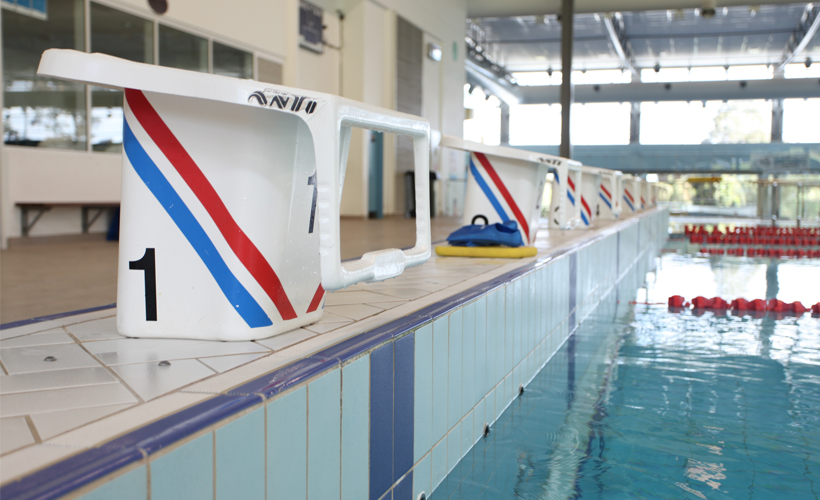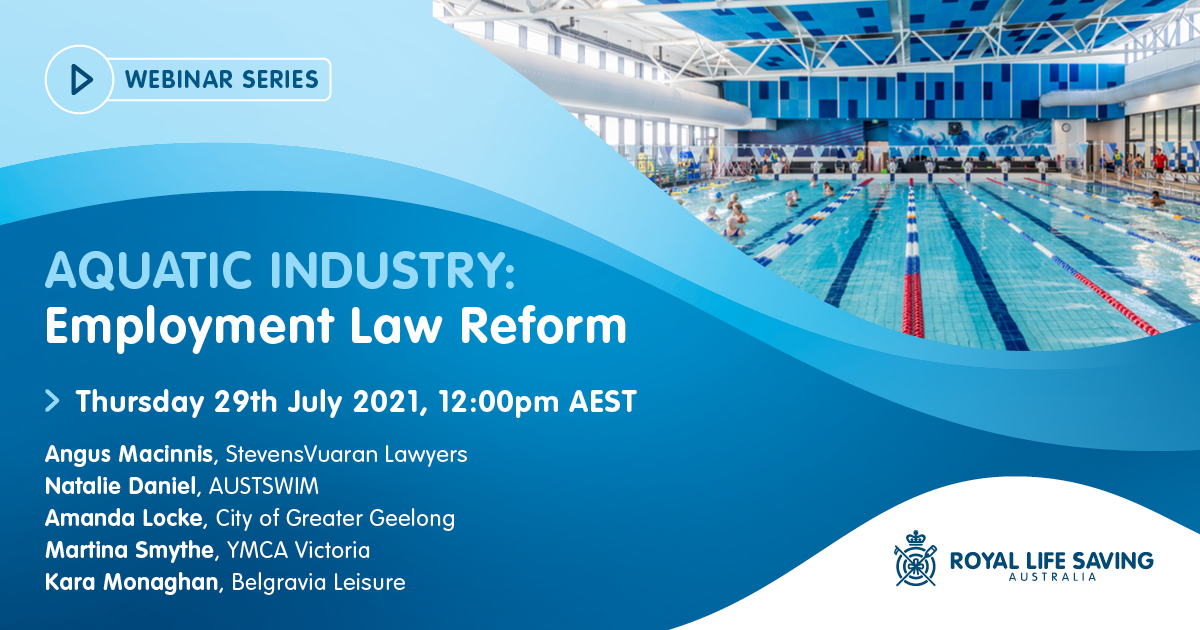
When “modern awards” were introduced in Australia in 2009, they were intended to simplify the process of determining employment conditions. For the aquatic industry, theoretically it should be simple - the Fitness Industry Award (the Fitness Award) covers “aquatic centres” and “aquatic services or classes”, so that’s all HR managers need to know about, yes?
Unfortunately, no. Firstly, the Fitness Award specifically excludes some employees (like cleaners and security staff) who are covered by other awards, and second, it is also necessary to consider whether an employee at an aquatic centre comes within one of the classifications under the Fitness Award. Last week, three judges of the Federal Court of Australia considered the award coverage of a swim coach and provided some useful lessons for the aquatic industry.
Facts of the trial
A swim coach was employed by a Melbourne Swimming Club (the Club) as a swim coach. When their employment was terminated, they brought claims against the Club which depended, in part, upon an entitlement to award coverage. They argued that they were covered by the Fitness Award (or alternatively, argued that they were covered by the Sporting Organisations Award, or if not that, the Miscellaneous Award, which demonstrates that multiple awards will often overlap).
The first (trial) judge rejected all of the Coach’s award-based claims. The coach’s claims that they were covered by level 4A, or level 5, of the Fitness Award were rejected because they did not hold a “Fitness Industry AQF Certificate Level IV” qualification (which the judge noted has historically been not been associated with swim coaches). The judge also rejected the coach’s claim to be covered by level 4 of the Award, because that level requires the holding of a bronze licence for coaching, and the coach held a silver licence. Accordingly, the trial judge found that the coach was too qualified to be level 4, but not qualified enough to be level 4A or 5, and thus found that the coach was outside the scope of the Fitness Award altogether.
The appeal decision
The initial case, called the trial case, was appealed to a higher court. This higher court had the power to overturn the trial judgement and last week that is essentially what they did. The appeal decision handed found that the coach was covered by level 4 of the Fitness Award. The appeal judges found that the qualifications required for level 4 were minimum qualifications, so that the coach, by exceeding them, did not lose the coverage of the Fitness Award. The appeal judges observed that the wording of the classification structure for level 4 set a “floor” for that level, but did not set a “ceiling” above which Award coverage would be lost.
The appeal judges also rejected the Club’s argument that the reference in level 4 to a person who is a coach of “beginner swimmers” meant that the coach lost the protection of the Fitness Award because he coached intermediate squads. The appeal judges noted the evidence that most of the swimmers at the Club were not beginner swimmers, and said that “if the intention behind the Award had been to exclude coaches who coach most of the swimmers at a club, one would expect it to have said so clearly”. The consequence of this is that the coach will be able to bring claims against the Club for breach of the Fitness Award.
Lessons for employers
Clause 8 of the Fitness Award requires that an employer “must advise an employee in writing of their classification on commencement of employment, and on any subsequent changes to their classification”. This was not done for the coach in the above case, and it is the most important lesson of the case. Not only is written notice of classification a legal requirement, but if the parties agree on the correct classification at the outset of the employment relationship, the likelihood of a later dispute will be significantly reduced.
The second lesson is that award interpretation is not a simple matter, as demonstrated by the fact that the three appeal judges reached a different conclusion to that reached by the first judge.
When the Fitness Award was made in 2009, the then Australian Industrial Relations Commission rejected a proposal to make a standalone award for swim schools. The reduction in the number of modern awards was meant to simplify the position for employers, but that meant compressing a number of industry-specific awards (with industry-specific classification structures) into the general “fitness industry”. Aquatic industry employers will need to consider carefully how that compression affects the specific work that the employees do when determining award classifications.
More on employment law
Recent reforms to the Fair Work Act (Cth) known as the Fair Work Amendment (Supporting Australia's Jobs and Economic Recovery) Act 2021 (Cth) that commenced from 27 March 2021 has brought about a series of issues relating to casual employment.
The new laws pertain in particular to casual employees and how they are defined and treated under the reforms.
Considering recent significant reforms to workplace laws, Royal Life Saving is pleased to facilitate a virtual workshop on how aquatic facilities can understand and prepare for the changes.
We are pleased to be joined by an expert panel of presenters and speakers including:
- Angus Macinnis, Director of Dispute Resolution, StevensVuaran Lawyers
- Natalie Daniels, General Manager – Education, Compliance and Engagement, AUSTSWIM
- Amanda Locke, Manager Leisure and Recreation, City of Greater Geelong
- Martina Smythe, General Manager People and Culture, YMCA Victoria
- Kara Monaghan, VIC-TAS Regional Manager, Belgravia Leisure
Webinar Details:
Thursday 29th July 2021, 12:00pm-1:00pm AEST
Registration:

To register for the session and also to register your questions for consideration please click here.
About Royal Life Saving
Royal Life Saving is a public benevolent institution (PBI) dedicated to reducing drowning and turning everyday people into everyday community lifesavers. We achieve this through advocacy, education, training, health promotion, aquatic risk management, community development, research, sport, leadership and participation in national and international networks.
Disclaimer: This news story is produced by Royal Life Saving. It is designed and intended to provide general information only in summary form and current at the time of publication. The contents do not constitute legal or professional advice and is not intended to be a substitute for legal or other professional advice and should not be relied upon as such. You should seek your own legal advice or other professional advice in relation to any matter you or your organisation may have.
